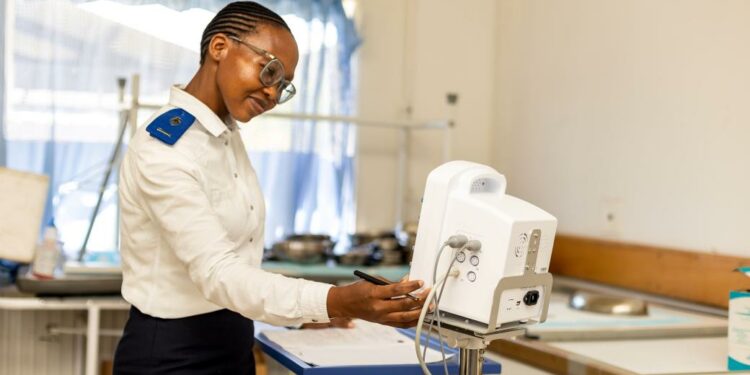Lesotho has achieved nearly a 10% reduction in its maternal mortality rate between 2020 and 2023, decreasing from 529 to 478 deaths per 100,000 live births, thanks to the implementation of m-mama — an innovative digital platform for maternal and neonatal emergency referrals. The initiative, which has already responded to over 8,800 maternal emergencies and 650 neonatal cases, has proven crucial in improving emergency response times in remote communities, cutting access times to emergency care by 50%.
Initially launched by the Vodafone Foundation in collaboration with the Ministry of Health and local communities, m-mama was officially adopted as a government-run program in January 2025. The model relies on a network of 3,800 volunteers who use a range of transport — from cars to horses and boats — to connect pregnant women and newborns to life-saving medical services through a mobile app that functions even without internet access.
Nigeria drives its digital transformation with Equinix’s new facility
Stories like that of Mantoa Moleli, a shopkeeper who became a volunteer driver after hearing about the program at a local clinic, highlight the transformative power of the initiative. Armed with a mobile phone and basic first aid training, Moleli has saved lives in her community. Like her, thousands of trained drivers ensure timely transportation at no cost to users, who simply dial a toll-free number to receive immediate assistance.
m-mama’s effectiveness lies not only in its nationwide coverage and low operating costs — around $130,000 per year, less than maintaining a single ambulance — but also in its integration into Lesotho’s 2025–2030 National Digital Health Strategy, with technical support from the WHO. This alignment ensures the program’s sustainability and long-term impact.
“With our government’s strong commitment and the proven success of the m-mama model, the lives of countless mothers and babies in Lesotho are being safeguarded,” stated Queen Masenate Mohato Seeiso during the program’s official handover. Dr. Innocent Nuwagira, WHO representative, added, “This partnership is a powerful example of how technology can transform health equity. We are building a future where access to emergency medical care is not a privilege but a right for everyone in Lesotho.”









